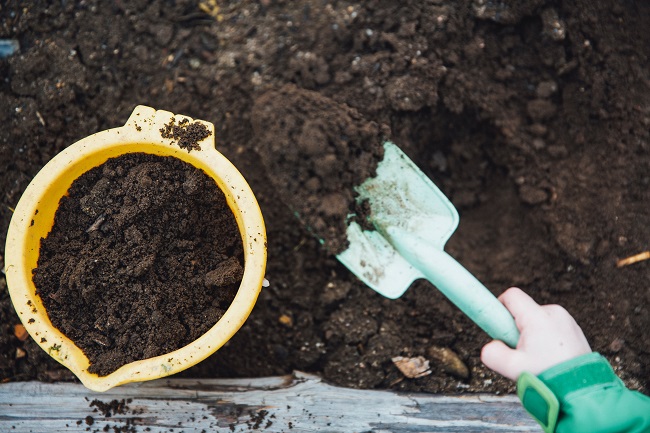
Last winter on a snowy February evening, my husband and I drove home from a meeting of the Clean Air committee in a neighboring town. It prompted an active discussion on just exactly how to have a nice lawn, a healthy organic garden and landscape plantings without dandelions and other lawn pests. Our main property is an acre lot that looks great but lacks a weed-free lawn. It is a good thing that I like dandelions.
We had gone to see a speaker from the Safer Pest Control Project, a nonprofit organization that has been in the forefront in Chicago working to remove pesticides and herbicide from the Chicago Public Schools originally and later the Park system. This organization was formed in answer to some alarming statistics of soaring asthma rates, cancer increase, and immune system damage in younger children in Chicago. (Children were 4x’s more likely of developing asthma and cancer than their suburban counterparts)
During the talk we heard some interesting statistics:
- 25% of conventional lawn and garden care products use 3 times more fertilizers, pesticides, and herbicides than agriculture. (A little is good, more must be better?)
- 82,000 pounds per year of pesticides and herbicides were having a major affect on wildlife and aquatic life in Chicago’s ponds and river systems. Algae blooms were rapidly depleting oxygen in the waterways and negatively affecting the quality and number of species found through monitoring.
- Nationally, 70 million tons of fertilizer is applied annually and 40-60% of it soaks into groundwater recharge areas.
- A 1/3-acre lawn consumes 18 gallons of fossil fuel a year.
- Application of commercial herbicides has resulted in “super weeds” and the immunity of insect pests to BT, bacillus thuringensis organic pesticide.
So, what is the answer and is also a win/win situation at the same time? Biodiversity! Look for multiple species of plants and insects in the yard, on an acreage, or farm. Many people who aspire to the perfect lawn believe that only lawn care chemicals work and that it is the only way to get rid of the weeds. Safer has done mountains of research over many years, to provide the green healthy and sustainable lawn. The answer might be IPM or Integrated Pest Management. In many cases it is also significantly less expensive to implement. They have many useful handouts on their website but one that was particular interest is the natural lawn care to which I have added organic lawn care notes.
- Mow grass at a height of 2.5-3.5 inches and apply corn gluten “before Forsythia bloom” (early April to May in the upper Midwest.)
- Hand pull weeds or spot spray with an organic herbicide such as agricultural acetic acid and dish soap.
- Fill in bare spots with a mix of soil and compost then seed with your choice of lawn seed. (Tall fescue is drought tolerant.)
- Apply compost tea to the entire lawn.
- Do a soil test for pH and nutrients. What weeds are present? They can tell you what type of soil issues or even that you have fertile soil. Deep tap-rooted weeds for example are nature’s way of bringing nutrients to the surface in depleted soils. They are also telling you if your soil is fertile or not.
- Fertilize by spreading corn gluten, which, acts as a fertilizer and weed killer at the same time or an organic “weed and feed” so to speak. It needs to be applied early in the spring as it suppresses the germination of weed seeds but will also do the same on grass seed that you want to grow. It has available nitrogen as well, so it does double duty and is biodegradable. It works slowly so multiple year applications may be necessary. Grass seed can be planted 6 weeks after the application of corn gluten.
- Re-apply compost tea every 6 weeks after seeding and again in the early fall. The friendly bacteria will make nitrogen and nutrients available to the grass or the vegetable garden in just the “right” amounts without nitrate runoff.
Other options for a nice-looking yard are more vegetable and flowerbeds in unexpected places which, of course, one can use compost and compost tea.
More Compost Please
Your compost pile is your best friend when it comes to free-cycled nitrogen and getting higher on-site soil fertility. Anyone interested in gardening of any sort should have a compost pile or worm bins full of red wigglers that make compost or both.
Compost teas are the best way of increasing microbial activity in your soil and can be made on sight from “waste” products. This means that compost piles and compost tea is a sustainable gardening. Several cities in the U.S., especially San Francisco, now collect food scraps and haul them as a recyclable to a compost facility with the fresh compost being sold to local area wine growers and organic farmers.
Compost teas have the advantage of making small amounts of nitrogen available to your plants and lawn while increasing the microbial and fungal activity around plant roots as well. Compost teas can also be used as a foliar spray, which assists plants with nutrient uptake and helps the fight off plant diseases.
Direct application of compost can really boost available nitrogen for unsightly lawns and gardens. Well-rotted compost with a higher level of rotted (2 years or older) cow, horse, or goat manure is the super ingredient. Need nitrogen? Get a chicken or goat. (And tell the neighbors before the critters arrive.) An interesting trend in many urban areas is the return of the back yard chicken coop or goats that are pets/lawnmowers.
Many towns and cities are amending their zoning laws to allow for a little backyard farming. Seattle, Minneapolis, Oak Park Illinois, and many other communities now allow chickens in small numbers. Could the back area of your greenhouse do double duty as a hen house?
Caron Wenzel is an Environmental Educator and the co-author of Eco-yards. She is the owner of Blazing Star Inc, native plant nursery and soil remediation business located in Woodstock Illinois. Contact her at: Blazing-star.com.
Related Articles & Free Email Newsletter
The Bokashi Method Alternative to Composting



Comment here